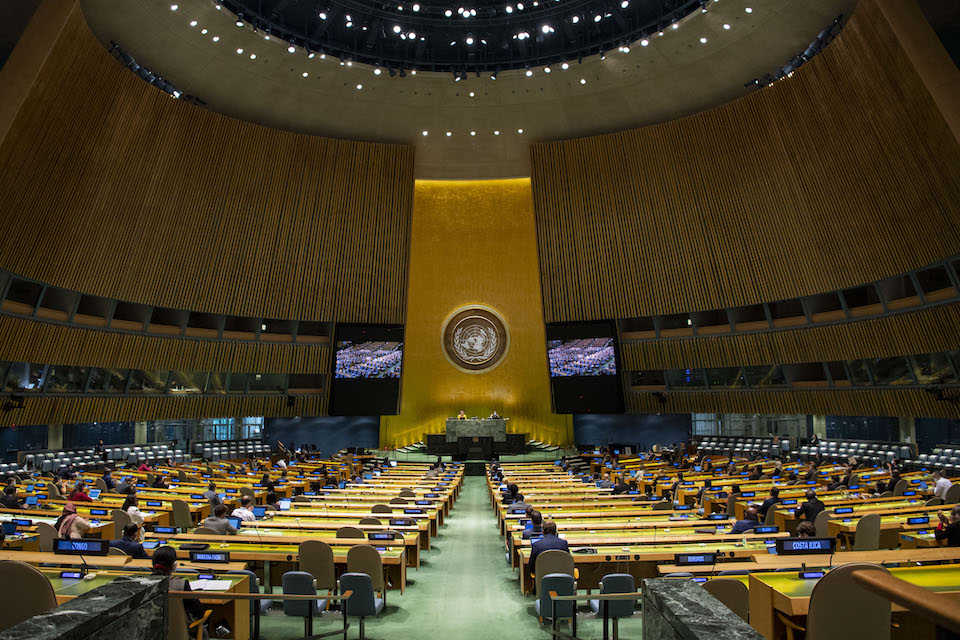Human rights situation in Xinjiang and recent developments in Hong Kong: joint statement
Joint statement given by Germany on behalf of 39 countries at the UN General Assembly Third Committee.

Madam President, I have the honour of delivering this cross-regional joint statement on behalf of the following 39 countries: Albania, Australia, Austria, Belgium, Bosnia and Herzegovina, Bulgaria, Canada, Croatia, Denmark, Estonia, Finland, France, Haiti, Honduras, Iceland, Ireland, Italy, Japan, Latvia, Liechtenstein, Lithuania, Luxembourg, the Republic of the Marshall Islands, Monaco, Nauru, the Kingdom of the Netherlands, New Zealand, North Macedonia, Norway, Palau, Poland, Slovakia, Slovenia, Spain, Sweden, Switzerland, the United Kingdom, the United States and my own country Germany.
We are gravely concerned about the human rights situation in Xinjiang and the recent developments in Hong Kong.
In June 2020, 50 UN Special Procedures mandate holders issued an exceptional letter of concern, calling on the People’s Republic of China to respect human rights. We share their grave concerns. We call on China to respect human rights, particularly the rights of persons belonging to religious and ethnic minorities, especially in Xinjiang and Tibet.
On Xinjiang, we are gravely concerned about the existence of a large network of ‘political re-education’ camps where credible reports indicate that over a million people have been arbitrarily detained. We have seen an increasing number of reports of gross human rights violations. There are severe restrictions on freedom of religion or belief and the freedoms of movement, association, and expression as well as on Uyghur culture. Widespread surveillance disproportionately continues to target Uyghurs and other minorities and more reports are emerging of forced labour and forced birth control including sterilization.
We also share concerns expressed separately by a group of UN experts that a number of provisions in the Hong Kong National Security Law do not conform to China’s international legal obligations. We have deep concerns about elements of the National Security Law that allow for certain cases to be transferred for prosecution to the Chinese mainland. We urge the relevant authorities to guarantee the rights which are protected under the ICCPR (International Covenant on Civil and Political Rights) and the Sino-British Joint Declaration, including freedoms of speech, the press and assembly.
Mr Chair, we call on China to allow immediate, meaningful and unfettered access to Xinjiang for independent observers including the UN High Commissioner for Human Rights and her Office, and relevant special procedure mandate holders; to urgently implement CERD’s eight recommendations related to Xinjiang, including by refraining from the arbitrary detention of Uyghurs and members of other minorities. In view of our concerns about the human rights situation in Xinjiang, we call on all countries to respect the principle of non-refoulement. We also call on China to uphold autonomy, rights and freedoms in Hong Kong, and to respect the independence of the Hong Kong judiciary.
Thank you.